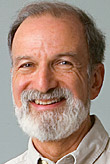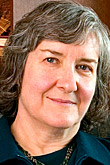A $50,000 grant from the New York City-based Henry Luce Foundation will support the development of new Lawrence University courses, study-abroad opportunities and collaborative research projects in China, all with an environmental focus, college officials have announced.
Utilizing the resources of Lawrence’s current East Asian Studies and Environmental Studies programs, the new “Sustainable China: Integrating Culture, Conservation and Commerce” program will provide opportunities for students to examine, through a multi-disciplinary approach, the critical issues of economic growth, environmental sustainability and a shifting cultural landscape facing China.
Awarded through the Luce Initiative on Asian Studies & the Environment (LIASE), the grant also will enable Lawrence to expand partnership collaborations with two Chinese institutions, Guizhou Normal University and the Linden Centre in Yunnan province.
Emphasizing integrated sustainability, Sustainable China will focus on three primary areas of study:
• culture, including language, history and the roles of ethnic minorities
• conservation, highlighting the importance of governance systems that encourage both public and private sectors to be good stewards of available natural resources.
• commerce or economic vitality, from the perspective that environmental sustainability should be pursued in ways that also drive economic sustainability.

“The three Cs of sustainability provide a framework for meaningful, multi-disciplinary examination of contemporary China on its own and in a global context,” said Marty Finkler, professor of economics and John R. Kimberly Distinguished Professor in the American Economic System. “That framework will force students to grapple with the reality that environmental science and policy decisions have consequences for economic development, poverty reduction and cultural preservation.”
Designed to attract students from a wide range of majors and interests, the Sustainable China program has three major goals: broaden Lawrence student engagement with China in the curriculum; create new opportunities for students to gain first-hand experience in China and promote mutually beneficial bilateral partnerships with organizations in China.
Details of the program will be developed over the next 13 months with a goal of securing further Henry Luce Foundation grant support to launch the Sustainable China program in the 2012-13 academic year.

“The Sustainable China program is a natural next step for Lawrence, joining the formidable talents of the Environmental Studies and East Asian Studies interdisciplinary faculties,” said Jane Parish Yang, associate professor of Chinese. “The resulting program will greatly increase the number, variety and depth of opportunities for Lawrence students to engage with China and perhaps become interested in learning Chinese.”
Finkler said the Karst Institute within Guizhou Normal University and the Linden Centre are “ideal partners” for the Sustainable China program.
“The Karst Institute’s cultural, conservation and economic context mesh very well with the goals of our program,” said Finkler. “Guizhou province is home to more than 20 ethnic minorities, including many Miao villages. The Hmong and the Miao peoples share the same historic and cultural roots. Guizhou province ranks near the bottom in terms of provincial per capita income in China but features a rich array of natural resources, so those three ‘Cs’ of sustainability are all present.
“The Linden Centre serves as a retreat for those who wish to study how traditional culture meshes with modern economic development, in an ecologically responsible way,” Finkler added.
The Linden Centre is the creation of Brian and Jeanee Linden, who also operate the Linden Gallery in Ellison Bay, not far from Lawrence’s Bjorklunden estate.
Since the formation of the East Asian Languages & Cultures department in 1989 (renamed East Asian Studies in 2003), Lawrence has steadily increased its China-focused curricular and co-curricular programming. Efforts include:
• the addition of a major in Chinese
• a series of study tours of China, Japan and southeast Asia involving 82 faculty members and 166 students from 2001-2005 supported by a grant from the Freeman Foundation
• establishment of a new professorship in 2002 devoted to comparative politics and political economy of Asia through the support of Luce Foundation grant
• co-hosting the “China-U.S. Water Symposium” in 2008, which attracted Chinese engineers and policy advisors as well as Wisconsin Department of Natural Resources officials, members of the NEW North economic development consortium, community leaders, legislators, policy experts and academic experts.
• an investigation of water resource management issues in China by 12 students and three faculty members during a three-week trip to China in 2009 funded by a grant from the Luce Foundation
The Henry Luce Foundation was established in 1936 by Henry R. Luce, the co-founder and editor-in-chief of Time Inc., to honor his parents who were missionary educators in China. The Foundation builds upon the vision and values of four generations of the Luce family: broadening knowledge and encouraging the highest standards of service and leadership. It seeks to bring important ideas to the center of American life, strengthen international understanding, and foster innovation and leadership in academic, policy, religious and art communities.